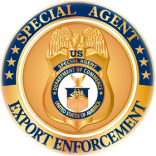
FOR IMMEDIATE RELEASE |
BIS Imposes Penalty on Quantum Corporation to Resolve Alleged Violations of the Antiboycott Regulations
WASHINGTON, D.C. – Today, the Department of Commerce’s Bureau of Industry and Security (BIS) imposed a civil penalty of $151,875 against Quantum Corporation (Quantum), a data storage, management, and protection company based in San Jose, California, to resolve 45 alleged violations of the antiboycott provisions of the Export Administration Regulations (EAR). Quantum voluntarily self-disclosed the conduct to BIS, cooperated with the investigation by BIS’s Office of Antiboycott Compliance (OAC), and implemented remedial measures after discovering the conduct at issue, all of which resulted in a significant reduction in penalty.
“Today’s settlement highlights how important it is that companies ensure their antiboycott compliance programs reach all the way throughout their organizations,” said Assistant Secretary for Export Enforcement Matthew S. Axelrod. “A company with foreign subsidiaries, distributor agreements, or other contractual relationships in boycotting countries has extra work to do to amplify awareness of the antiboycott regulations among their foreign partners.”
Case Background:
As part of the settlement with BIS, Quantum admitted to the conduct set forth in the Proposed Charging Letter, which alleged 45 violations of Section 760.5 of the EAR (Failing to Report the Receipt of a Request to Engage in a Restrictive Trade Practice or Foreign Boycott Against a Country Friendly to the United States). Specifically, between July 2018 and December 2019, Quantum received 45 requests from its customer, a distributor located in the United Arab Emirates (UAE), to refrain from importing goods of Israeli origin into the UAE in fulfillment of purchase orders from that customer. Quantum failed to report to BIS the receipt of these requests.
The order, settlement agreement, and proposed charging letter are available here.
Additional Information:
These BIS actions were taken under the authority of the Anti-Boycott Act of 2018, a subpart of the Export Control Reform Act of 2018, and its implementing regulations, the EAR. The antiboycott provisions set forth in Part 760 of the EAR discourage, and in certain circumstances prohibit, U.S. persons from taking certain actions in furtherance or support of a boycott maintained by a foreign country against a country friendly to the United States (an unsanctioned foreign boycott).
In addition, U.S. persons must report to OAC their receipt of certain boycott-related requests, whether or not they intend to comply with them. Reports may be filed electronically or by mail on form BIS-621P for single transactions or on form BIS-6051P for multiple transactions involving boycott requests received in the same calendar quarter. U.S. persons located in the United States must postmark or electronically date stamp their reports by the last day of the month following the calendar quarter in which the underlying request was received. For U.S. persons located outside the United States, the postmark or date stamp deadline is the last day of the second month following the calendar quarter in which the request was received. Forms for both electronic transmission and mail submission may be accessed from the forms request page.
BIS maintains a boycott Requester List on the OAC webpage with the objective of helping U.S. persons comply with the reporting requirements of the antiboycott regulations set forth in Part 760 of the EAR. Each entity on the Requester List has been recently reported to BIS on a boycott request report form, as required by Section 760.5 of the EAR, as having made a boycott-related request in connection with a transaction in the interstate or foreign commerce of the United States. U.S. persons are encouraged to diligently review transaction documents from all sources, but especially transaction documents with or involving these listed parties, given that they have been identified by others as a source of boycott-related requests. A party’s inclusion on the Requester List does not mean that U.S. persons are restricted from dealing with the listed party. Rather, U.S. persons are on notice that the listed party is more likely to make reportable boycott-related requests.
Pursuant to Section 764.8 of the EAR, a party may submit a voluntary self-disclosure if it believes that it may have violated Part 760 or Part 762 of the EAR (recordkeeping requirements relating to Part 760). More information on voluntary self-disclosures can be found online.
BIS has enhanced its antiboycott enforcement efforts to prevent U.S. companies from being used to support unsanctioned foreign boycotts, most notably the Arab League boycott of Israel. In October 2022, BIS raised its penalties and instituted a requirement that companies entering into settlement agreements for antiboycott violations admit to a statement of facts outlining their conduct. In July 2023, BIS announced a renewed focus on foreign subsidiaries of U.S. companies and noted that it would explore additional ways to deter foreign parties from issuing or making boycott requests. BIS also modified the boycott reporting form to require submitters to indicate the identity of the requesting party.
For additional information regarding the application of the antiboycott provisions of the EAR, please contact OAC through the OAC Advice Line at (202) 482-2381 or through the online portal.
For more information, visit BIS’s website at: https://www.bis.gov.https://www.bis.gov.
###

